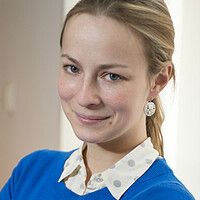Sochi Olympics gold medal count: US lags
Loading...
Canada and Norway remained tied for the most gold medals Tuesday as the United States finished a disappointing day that yielded only two medals – and no golds – bringing its combined total to seven.
Norway held on to its lead in the medal count and reigned victorious on the the cross-country course, claiming double gold: for Maiken Caspersen Falla in women’s cross-country freestyle sprint and Ola Vigen Hattestad in the men's event.
At the men's snowboard halfpipe, Iouri Podladtchikov of Switzerland won the gold medal. The event ended in disappointment for America’s Shaun White, a favorite for gold who faltered on both of his runs and was edged out of the podium altogether, placing 4th. The silver and bronze medals went to Japanese snowboarders.
Germany’s Carina Vogt won the gold medal in the historic debut of the women’s ski jumping competition at the Winter Olympics, sharing the podium with Austria, and France. Jessica Jerome was the top American finisher in 10th place. Sarah Hendrickson, sidelined for most of the season by a knee injury that she is still struggling to overcome, placed 24th.
Germany notched its second gold medal of the day with a win by Natalie Geisenberger in an individual luge event. American Erin Hamlin placed third, marking the first time in Olympic history that the United States was on the event’s podium.
Another US medal on Tuesday was the silver won by Devin Logan in ladies’ ski slopestyle. Canadian Dara Howell won the gold, and her teammate Kim Lamarre took the bronze.
Meanwhile, a women’s cross-country sprint quarterfinal ended in another surprise disappointment for the US, when medal hopeful Kikkan Randall failed to quality for the final, missing out by just 0.05 seconds. The Monitor's Olympic correspondent Mark Sappenfield reported from Sochi:
Randall was leading her quarterfinal coming into the stadium, she was in second – which would have qualified her for the semifinals – at the turn. Even at the last moment, had she lunged for the finish as skiers normally do, she might have made up the extra 0.05 seconds that would have gotten her into the semifinal on her time alone. “But I just stiffened up,” she said after the race...
Randall’s dedication – so punishing that she was nicknamed the “Kikkanimal” – has brought her from an also-ran in 2002 to a two-time World Cup sprint champion in 2012 and 2013, meaning she was the best female cross-country sprinter in the world for those two seasons, based on cumulative results from November to March. Her success is without precedent in the history of American cross-country skiing.
Yet perhaps her greater legacy is in not doing it alone – indeed, in obstinately refusing to do it alone. “Team” is a loose word in cross-country skiing – a collection of skiers from one country. But Randall’s commitment to the success of her teammates is more like that of a den mother.
One American skier, Sophie Caldwell, advanced to the women’s final, finishing 6th.






